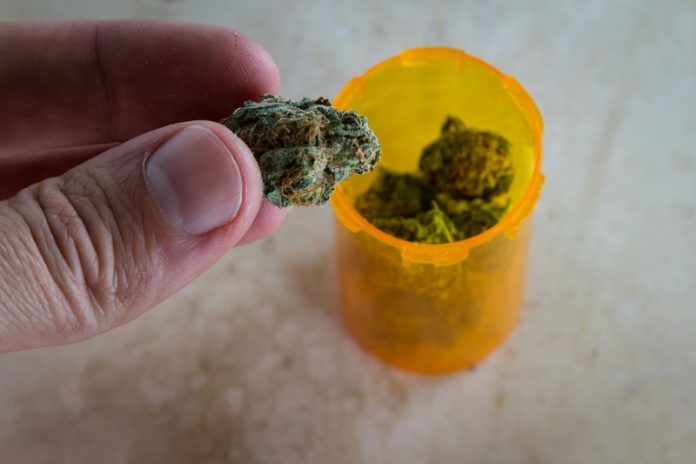Dr Mark Ware, Chief Medical Officer at Canopy Growth, provides an overview of the research that already exists around medicinal cannabis and explains why there is a need to educate clinicians further
The medicinal cannabis industry is growing rapidly in the UK with new and established companies entering the market, all aiming to supply patients with new formulations of otherwise old medicine. However, despite regulations allowing for legal use of medicinal cannabis on November 1st, 2018, very few patients are able to access these medicines either privately or on the NHS.
There have been a small number of patients championing access to medicinal cannabis, such as Billy Caldwell and Alfie Dingley, both of whom are among the four who have managed to obtain a prescription in the UK as of the time of writing.
One factor contributing to the shortage of prescriptions to date is lack of educational support given to clinicians; another is the shortage of clinical evidence supporting the efficacy of different kinds of cannabinoid preparation. As medical training in this area is not standard for clinicians, many are having to do their own research to learn more about the potential safety and efficacy of cannabis. Additionally, some hospitals have banned the prescription of medicinal cannabis and others have asked for reassurance that their jobs will not be at risk if they prescribe.
While there is a clear case for further research, cannabis and its components have been extensively investigated and used as a medicine for many years, with evolving clinical and real-world evidence suggesting the potential benefit of cannabinoids for those with MS, chronic pain, cancer treatment-related nausea and epilepsy, among others. However, this evidence is not widely shared or appreciated in undergraduate or continuing medical education for health professionals.
Chronic pain
Relief from chronic pain associated with cancer, musculoskeletal disorders and central and peripheral neuropathies is among the most common reasons cited by patients for the medical use of cannabis.[i] However, clinical trial data are suggestive, but not conclusive, of cannabis treatment of chronic pain.i,[ii] Issues include lack of standardized products, heterogeneity of conditions, small sample sizes and short follow up. Neuropathic pain appears to be the most well-studied condition. Overall evidence suggests that cannabinoids deserve consideration as a treatment option for refractory pain, with increasing calls for cannabinoids to be evaluated as alternatives to opioids.[iii]
While a large number of studies suggest cannabinoids can have a moderate effect on pain, more research needs to be done in regard to efficacy, dose, routes of administration, and safety.
Epilepsy
A number of recent reviews have shown that cannabidiol (CBD) is more effective than placebo in reducing the number of seizures by 50% or more and improved overall quality of life.[iv] Indeed, the US FDA recently approved a prescription form of CBD for refractory childhood epilepsy conditions.
MS
Spasticity and pain in MS have been well studied as targets for cannabinoid therapy, and in a review of 17 studies, use of cannabis-based products have been found to be associated with improved patient-reported spasticity in the long term.[v]
Addiction
A 2016 survey of consumers attending a Michigan medical marijuana dispensary suggesting that medical cannabis use in pain patients was associated with a 64 percent reduction in opioid use.[vi] Likewise, analyses of prescription data from US Medicare enrolees in the US [with medical access to cannabis] suggest that access to cannabis is associated with a significant reduction in the prescription of conventional pain and other medication.[vii] In the context of an evolving crisis of mortality associated with opioid abuse, the role of cannabis in reducing harms associated with substance abuse deserves urgent consideration.
Adverse effects
Cannabis products are generally well tolerated, however common side effects for CBD or high THC products include nausea, vomiting, diarrhoea, fatigue and dizziness.[viii] The role of cannabis in patients with mental health disorders deserves careful study.
Dr Ware finishes: “Overall, cannabis may have benefit to very ill patients who are refractory to conventional therapy. More research into the efficacy and side effects of a variety of cannabinoids is clearly needed. However, there are many patients in the UK who cannot and will not wait for further clinical research, and these patients deserve and need their clinicians to feel confident enough to prescribe cannabis. With better information and guidance, clinicians and patients can work together to evaluate whether cannabis may be appropriate for them.”
References
[i] Light MK, Orens A, Lewandowski B, Pickton T. Market size and demand for marijuana in Colorado. The Marijuana Policy Group. 2014
[ii] Whiting, P. F., R. F. Wolff, S. Deshpande, M. Di Nisio, S. Duffy, A. V. Hernandez, J. C. Keurentjes, S. Lang, K. Misso, S. Ryder, S. Schmidlkofer, M. Westwood, and J. Kleijnen. 2015. Cannabinoids for medical use: A systematic review and meta-analysis. JAMA, 313(24):2456–2473.
[iii] Humphreys K, Saitz R. Should Physicians Recommend Replacing Opioids with Cannabis? JAMA.2019;321(7):639–640.
[iv] Stockings, E., Zagic, D., Campbell, G., Weier, M., Hall, W. D., Nielsen, S. et al. ‘Evidence for cannabis and cannabinoids for epilepsy: a systematic review of controlled and observational evidence’. Journal of Neurology, Neurosurgery and Psychiatry 2018;89, 741-753.
[v] Koppel BS, Brust JC, Fife T, et al. Systematic review: efficacy and safety of medical marijuana in selected neurologic disorders: report of the Guideline Development Subcommittee of the American Academy of Neurology. Neurology. 2014;82(17):1556-63.
[vi] Boehnke KF, Litinas E, Clauw DJ. Medical cannabis use is associated with decreased opiate medication use in a retrospective cross-sectional survey of patients with chronic pain. Journal of Pain. 2016;17(6):739–744.
[vii] Bradford AC, Bradford WD. Medical marijuana laws reduce prescription medication use in Medicare part D. Health Affairs. 2016;35(7):1230–1236.
[viii] Iffland, K., & Grotenhermen, F. An Update on Safety and Side Effects of Cannabidiol: A Review of Clinical Data and Relevant Animal Studies. Cannabis and cannabinoid research 2017;2(1), 139-154.
Dr Mark Ware
Chief Medical Officer
Canopy Growth











